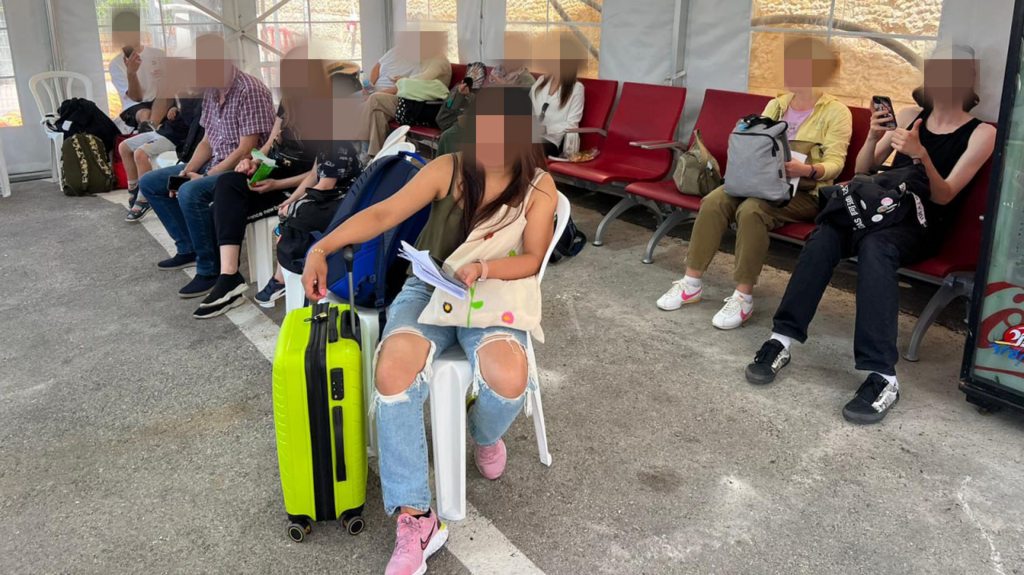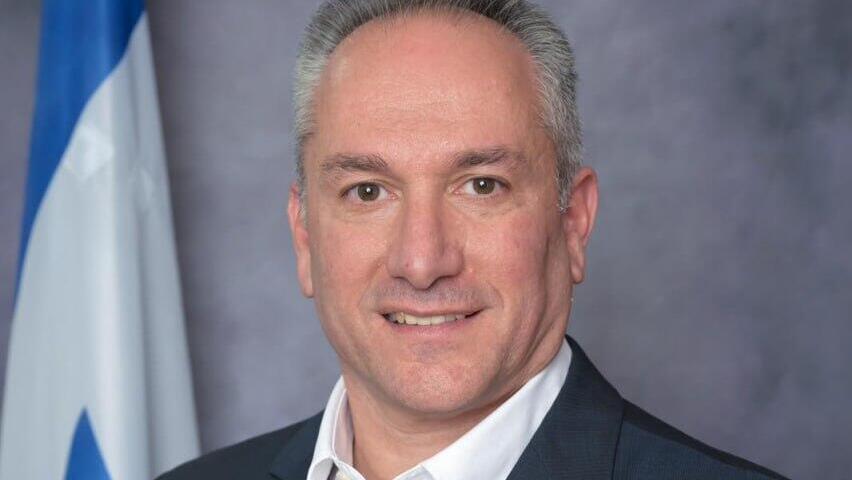Getting your Trinity Audio player ready...
Israel's border control system has been undergoing a "facelift," under the watchful eyes of Eyal Sisso, the new director general of the Population Authority. "I want a border control agent in Israel to be a professional and minimize mistakes and idle refusals, and to really focus on people who come here to settle illegally or that constitute a security or criminal threat," according to Sisso.
More stories:
Sisso, who took up his position about six months ago, added that, "My goal is that border control in Israel will look like border control in the US, Europe and Australia. I say to border control agents: 'Be kind, huggable and have a nice demeanor, along with a professional and assertive filter.' You can tell a person: 'You are not entering Israel' in a nice way. You can ask questions politely. You can operate in the same way as in other countries."
Everyone who travels abroad or returns from a vacation encounters them. It is true that, in recent years, the self-check-in border control stands have reduced the number of encounters with a border control agent, and still there is not a traveler who does not recognize the border controls of the Population and Immigration Authority. But it seems that, in the last six months, something is happening with border control. Something different, and better.
Sisso's entry into office about six months ago was the turning point. Sisso, until recently deputy consular director at the Ministry of Foreign Affairs, knows well how things work at the airport, but from the other side. He was the one handling complaints from embassies about improper treatment of foreign citizens, which more than once caused diplomatic crises with several countries - the latest of which is Ukraine, which threatened to cancel the visa exemption for Israelis because of the many deportations of Ukrainians entering the country and the humiliation by the border agents.
The border agents, who work around the clock, are the first faces that those entering Israel encounter, half of whom are foreign tourists. They are the first filter for entrance into the country and have to deal with dozens of issues a day and make decisions on whether to allow a foreign citizen to enter the country or hand him over for questioning. The agents need to ascertain whether a foreign citizen is an innocent tourist or a person who wants to illegally settle in Israel. They also must filter out criminal elements or people who pose a security threat.
In June, after a period of study, Sisso ordered a facelift for the Border Control Administration. The facelift is intended to strengthen the border controls on the one hand and, at the same time, to make a traveler's encounter with border control easier, simpler, faster and, above all, more courteous. Sisso's instructions to agents are to maintain a balance between maintaining the country's borders and providing the best, kindest and welcoming service to those who pass through Israel's gates.
In recent weeks, the agents have been undergoing seminars and training on the topic of improving service to all types of populations - Israelis and foreigners - with an emphasis on attitude and courtesy. They go through simulations and a service workshop. At the same time, the authority has examined all the reasons for the refusal of entry to the country, and canceled some of them.
It also was decided to strengthen the position of the border control agent. The authority is working on designing new uniforms for the border agents that will be similar to those in other countries. In order to do so, the authority hired a stylist who has designed new uniforms for the border guards in Australia, Germany, Italy and other countries. By the end of the year, the new uniforms will be in use.
Due to a shortage of border guards, the Population and Immigration Authority has launched a large-scale campaign to recruit 250 new guards for all 22 border crossings, and will offer perks including a job grant of up to 40,000 shekels; immediate civil servant status; and subsidized meals.
"Our border inspectors are our face and, in fact, they are the face of the state in front of every traveler who enters or leaves Israel. Investing in these workers and in the whole issue is our duty. When I took office, I decided to change the equation - we will work to provide them with everything required to do the job to the best of their ability," Sisso said.
A great deal of money has also been invested in improving the experience of travelers arriving in Israel and waiting for questioning. The unpleasant sight of dozens of foreigners waiting at the entrance to the country while the Israelis rush in through the country's borders has been stopped. A spacious, air-conditioned waiting area has been set up for those waiting for questioning. Twelve interrogation rooms are scheduled to be built.





